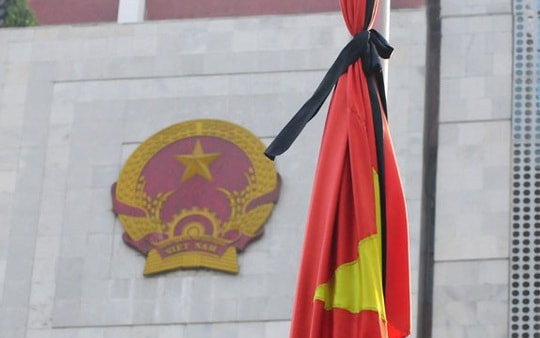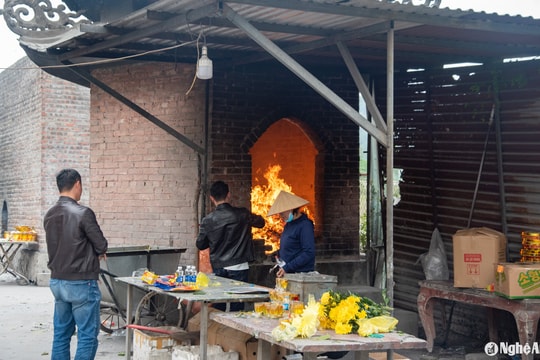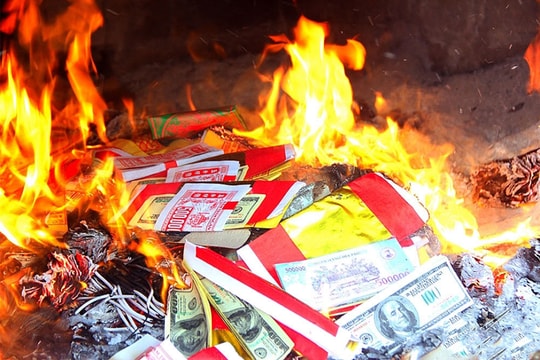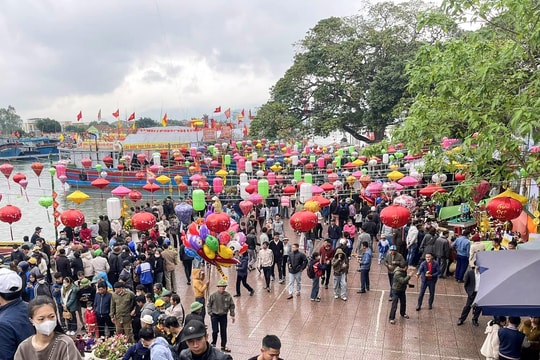Every year our people burn 5,000 billion dong of votive paper?
(Baonghean.vn) - According to unofficial statistics from the media, every year people burn up to 5,000 billion VND of votive paper. The accuracy of this number has not been verified by the authorities. However, the amount of votive paper that people burn during temple and pagoda ceremonies or Vu Lan festivals is extremely large.
It is necessary to remove
The Central Committee of the Vietnam Buddhist Sangha has just issued an official dispatch requesting the removal of the custom of burning votive paper from religious establishments under the management of the Sangha. This is considered a very positive and timely action to limit superstition in the process of practicing beliefs, saving money, preserving and promoting traditional cultural values of the nation.
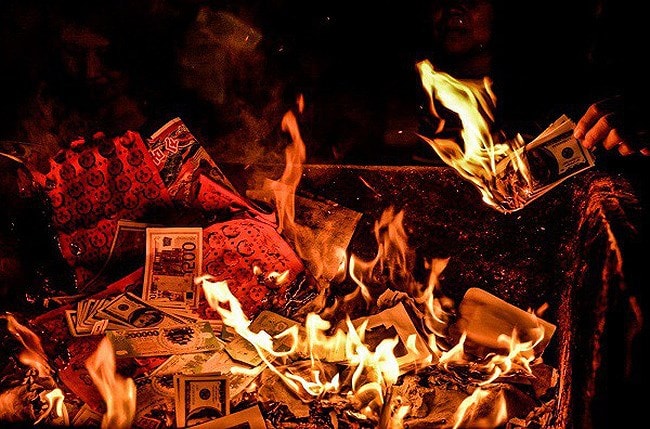 |
| Every year people spend a lot of money burning votive paper for the deceased. Photo: Internet |
The official dispatch of the Central Committee of the Vietnam Buddhist Sangha requests that monks and nuns uphold the spirit of Bodhisattva, guide Buddhist followers and people to abandon superstition, not burn votive paper at Buddhist places of worship and other forms contrary to Vietnamese customs, national culture and Buddhist culture.
At the same time, it is required that the system of pagodas, temples, monasteries, meditation centers, hermitages, Buddhist prayer halls, etc., especially those recognized as historical and cultural relics, organize festivals in a civilized and economical manner, without showing off, and promoting Buddhist cultural values.
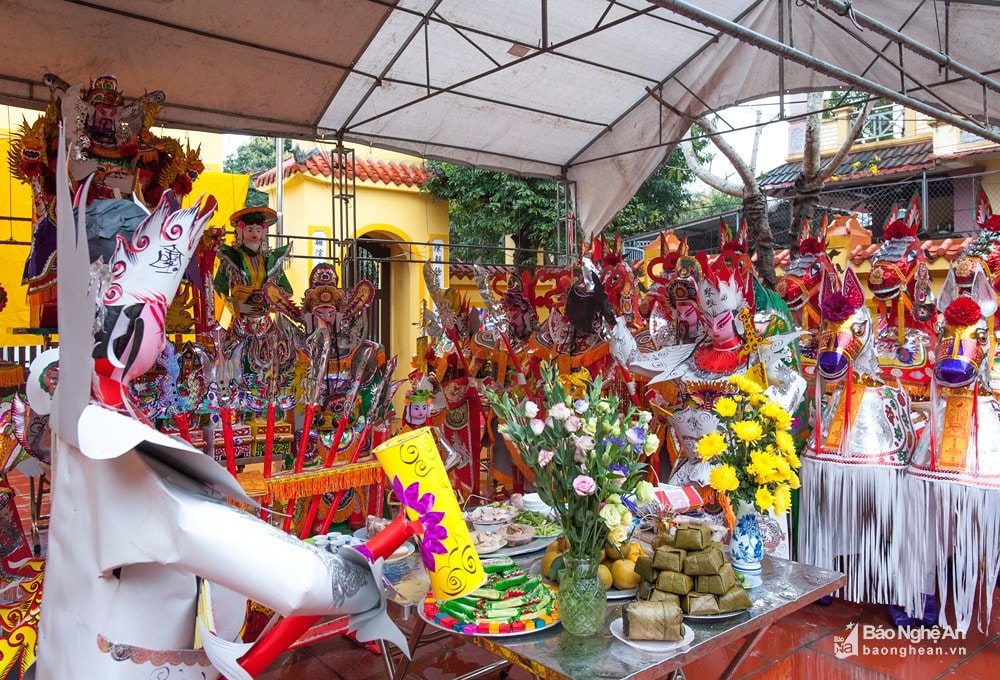 |
| In the first days of Spring, in many temples, pagodas and shrines, it is easy to see a lot of votive offerings displayed in front of the altar. Photo: Document |
How much this number is true or not, it is probably difficult to calculate. Because no one does statistics to know. But certainly the real amount of money that our people spend each year to buy votive paper to burn for gods, ancestors... is not small. Because, now, there is no house that celebrates death anniversaries, or on the 15th or 1st of the lunar month without burning votive paper. At least twenty or thirty thousand, at most hundreds of thousands, even millions. Especially on death anniversaries, or going to temples and shrines at the beginning of the year.
Burning votive paper is not a measure of sincerity.
The custom of burning votive paper originated in China. Poet Nguyen Du, when describing the scene of the Thuy Kieu sisters visiting graves during the Qingming festival, once wrote: “The mounds were pulled up in disarray. Gold shuttles were scattered, paper money ashes flew." What is that!
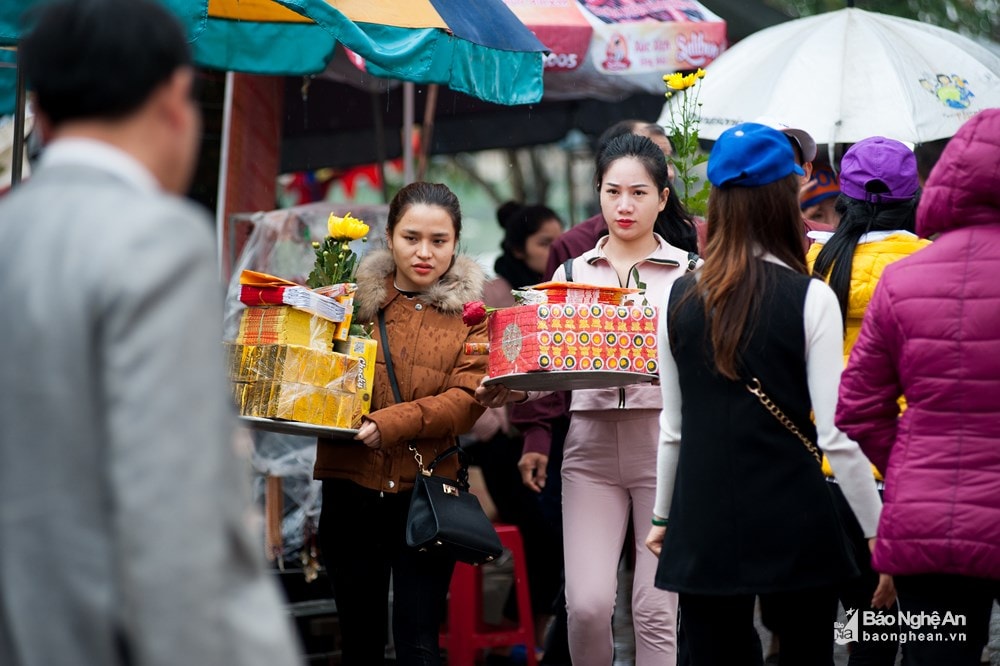 |
| Many families believe that the afterlife reflects the present life, so they show their filial piety to their deceased parents by burning a lot of votive paper. Photo: Document |
Through many changes in life, the custom of burning votive paper has sometimes increased, sometimes decreased, but perhaps, people have never burned votive paper as much as they do now. It is the concept that "the world is like the afterlife", after death, people still have another life, also have needs like when they are in this world, so every family wants their relatives in the other world to have a full life, from food, clothes, money, TV, house, car, fancy phone, even have a maid, have "younger siblings" to serve... When their parents and grandparents are still alive and do not have the conditions to take care of them, children try to show their filial piety by burning a lot of votive paper so that their parents and grandparents in the other world can use it, as a way of repaying.
Not only is votive paper burned in private homes or at graves during funerals and death anniversaries, it is also quite common in temples, pagodas, shrines, etc. The bigger the temple or pagoda, the more sacred it is, the more people come to burn votive paper.
Like previous years, this year's festival season, there is an opportunity to visit famous temples and pagodas in the North such as Ba Chua Kho Temple (Bac Ninh), Tay Ho Palace (Hanoi), Tran Temple, Giay Palace (Nam Dinh), Hoang Muoi Temple (Nghe An), Hoang Bay Temple (Lao Cai), Mau Temple (Cao Loc - Lang Son)... even pagodas, it is easy to see that everywhere, there is a fire burning votive paper all day and night.
Almost everyone who goes to temples and pagodas to pray also buys and burns votive paper. However, how many people bother to find out whether there are any Buddhist and Confucian scriptures that teach people to burn votive paper to worship their ancestors?
No one knows whether ancestors or gods receive offerings or money through burning votive paper. But one thing everyone can see is that with tens of thousands of tons of votive paper consumed each year, the amount of real money that evaporates from people's pockets is certainly not small.
Not only is it a waste of money, burning votive paper also causes many consequences: environmental pollution, deadly fires. It is not that we do not see this, but because of superstition, many people blindly follow it.
It is not that no one has called for an end to the burning of votive paper in temples! Many Buddhist dignitaries not only propagate and instruct Buddhists not to burn votive paper through Buddhist sermons, but also set an example of "saying no to votive paper", donating money to social charity with an amount of up to tens of billions of dong, helping many difficult lives in remote areas, poor students have the opportunity to rise up in life.
Burning votive paper - if it is simply a part of the ritual of worshiping gods and ancestors is a normal practice. It is a folk belief that needs to be respected. The mistake is that people today have quantified the burning of votive paper from a ritual in the process of practicing beliefs, into a measure of sincerity, into the severity of the request, to beg, to barter with the gods to bring themselves a title, salary, or a specific material value. At this point, it is clear that burning votive paper has become a distorted behavior that needs to be criticized and eliminated.
To rectify the situation of burning votive paper at festivals, at the end of 2010, the Government issued Decree No. 75/2010/ND-CP, regulating administrative sanctions for violations in cultural activities. However, up to now, has anyone been fined for burning too many votive papers or effigies at festivals or historical and cultural relics?
Therefore, the request of the Central Committee of the Vietnam Buddhist Sangha for followers, Buddhists and people to stop burning votive paper at pagodas and Buddhist places of worship is very much worth supporting and spreading to the whole society, in order to limit superstition, avoid wasting money, preserve and promote the traditional cultural and spiritual values of the nation./.

